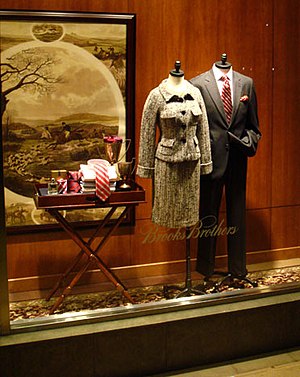The first time I really thought about the role of an astute retailer was while watching Mary Portas. Her point: any retailer can stock. Smart and profitable retailers, by contrast, handpick items that their shoppers will crave – and that is where they add value. In a great shop, she was saying, you don’t just come to buy, you come to discover things you wouldn’t normally find housed together. Fine point, well made.
These days, curation is all the rage. As Trendwatching so rightly observed in an article aptly titled “Everyone’s a curator now”, what used to pass for selecting, choosing or finding (Didn’t we once call that editing?) has been transformed into the more scholarly-sounding art of curating. That’s hardly surprising, Trendwatching observes, given the massive levels of choice that consumers now face, nor it is actually that new. In fact, the idea morphed out of the art galleries more than a decade ago, and really picked up pace with the arrival of Facebook, iPod playlists and Flickr.
To Steve Rosenbaum, author of Curation Nation, the trend is the next step in the democratisation of information. Twitter, blogs, Google and Facebook have brought a “daily data deluge” to people’s lives, he says in this article in Wired. Humanising that down into what people want to see, read and discover has generated social search, he says. Curation amounts to “a human-filtered web”.
John Doyle agrees. The VP of digital strategy at Cramer-Krasselt/Chicago says, in an article in Mashable, that marketers are excited by the thought of curation as an evolution in online influence. It helps shoppers sift through the huge range of choices available to them and, just as importantly, it does this with a human touch. (That to me is the interesting part.)
Doyle points to the way that Pinterest lets people organise the things they discover and he sees huge potential for retailers to put a new twist on this online. “Shopping curated collections can be a lot like shopping in a real-life boutique … where the goods are selected and stocked to meet the needs of its best customer: you,” he says. “And because these collections are created by real people (in many cases, friends from within the shopper’s own personal social network), the resulting shopping experience is authentic, powerful and hugely influential on purchase behavior.” He has some great ideas in his post as to how brands can take advantage of this.
OK – Google meets the personal shopper. I get that. But what are some of the wider implications of this handpicked phenomenon? It works for retail. Does it carry into B2B? What if you’re a consultancy or a professional services company? What role could curation have for you?
Exactly the same dynamics are at play in this space it seems to me: a plethora of thinking and new developments that client businesses don’t have time to sort through. Sure, some of them are just updates or revisions. But some are more than that. There’s new approaches, either from your field or another, that people deserve to be aware of. If you’re a consultancy, you can’t own others’ ideas of course, but you can add value by bringing your professional perspective to those ideas and to the evaluation of their wider worth.
For example, the other day I had a really interesting discussion with two strategists I was mentoring on when to use a Disruption-type model versus when you might want to use an amalgamative model like Medici. Neither of these models is my idea. But the principles of each are sound, proven, well documented and applicable, to best effect, in different circumstances.
There is some amazing thinking coming from the big names, but some of the most dynamic thinking is coming from bloggers and thinkers who aren’t at the top of Technorati – or at least not yet.
To me, part of the role of thought leadership is championing the leading ideas, whether they are yours or someone else’s. I think things get really interesting when, just as the Pinterest group did with Brooks Brothers, you start aligning the ideas and approaches of a whole range of thinkers. As long as – and here I completely agree with Mark Schaefer – you attribute generously and openly and don’t just colonise someone else’s intellect for your own gain. If you have the good sense to borrow from someone else’s mind, at least have the good manners to acknowledge that you have done so.
It takes huge skill and a massive amount of time to bring ideas to life. Especially big ideas. But, you know what, it takes an equally big-hearted person to evaluate an idea and to draw attention to it.
A facilitator it seems to me gets between an idea and the person it will benefit and tries to make money or gain profile from just being there. A selector just picks from what they know and feel comfortable with – so, essentially, more of the same. A curator finds an idea or a product and brings it to light in ways that will really benefit the community they are part of. Whether you like the term or not, there’s little doubt in my mind that the value any intermediary can add today is curational not just functional or selective.
In the fast moving, multi-channelled, multi-market, competitively converging world that we all work in, true value-add can’t just be about more of what you know. That’s stocking. Increasingly, it’s about having the confidence and the integrity to bring to the table the whole world’s best and latest thinking – yours and theirs – sifted, layered, organised, appraised and consideration-ready.
Incidentally, if you don’t think you have time to do that, what do you think constitutes a better use of your time as far as your clients are concerned? Today, it’s not just what you have that counts, it’s what you’ve found and what you’ve done with it.
More reading
- Not a problem: success pivots on what you solve, not just what you know
- Great brands unearth
- Is your brand ready for the experience war?
- Brands at the speed of life
- The fall of the wall between customers and culture
- Human marketing
- Sense and Seratonin
Other perspectives
- How many curators does it take to curate a story about lightbulbs? (RexBlog.com)
- Social Commerce, Pinterest And The Future Of Fashion Retail (techcrunch.com)
- Intel Launches Curated Site – Interview with Luke Kintigh, Managing Editor (contentcurationmarketing.com)
- Curated Content Gives Brands a Helping Hand (adweek.com)



